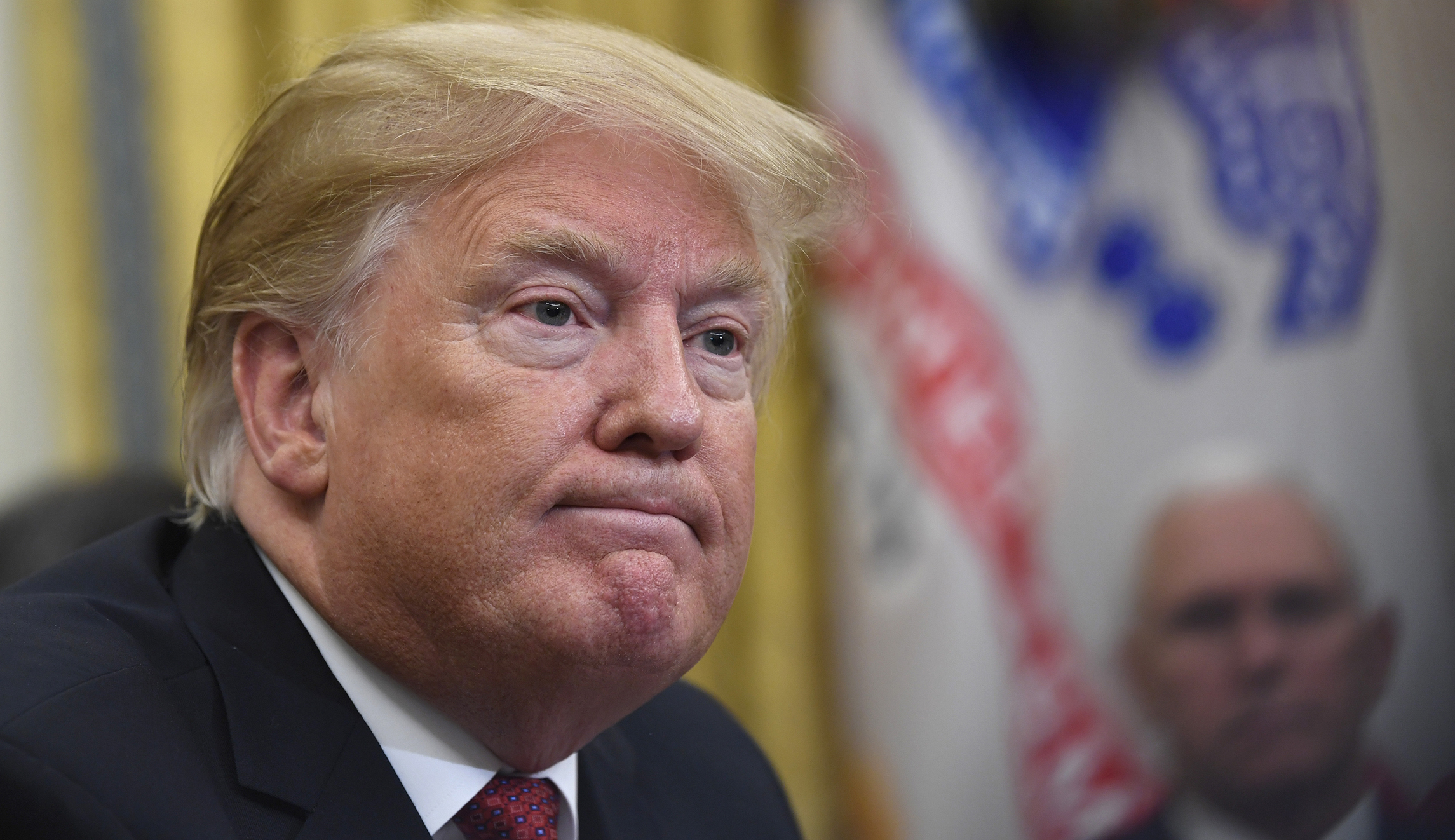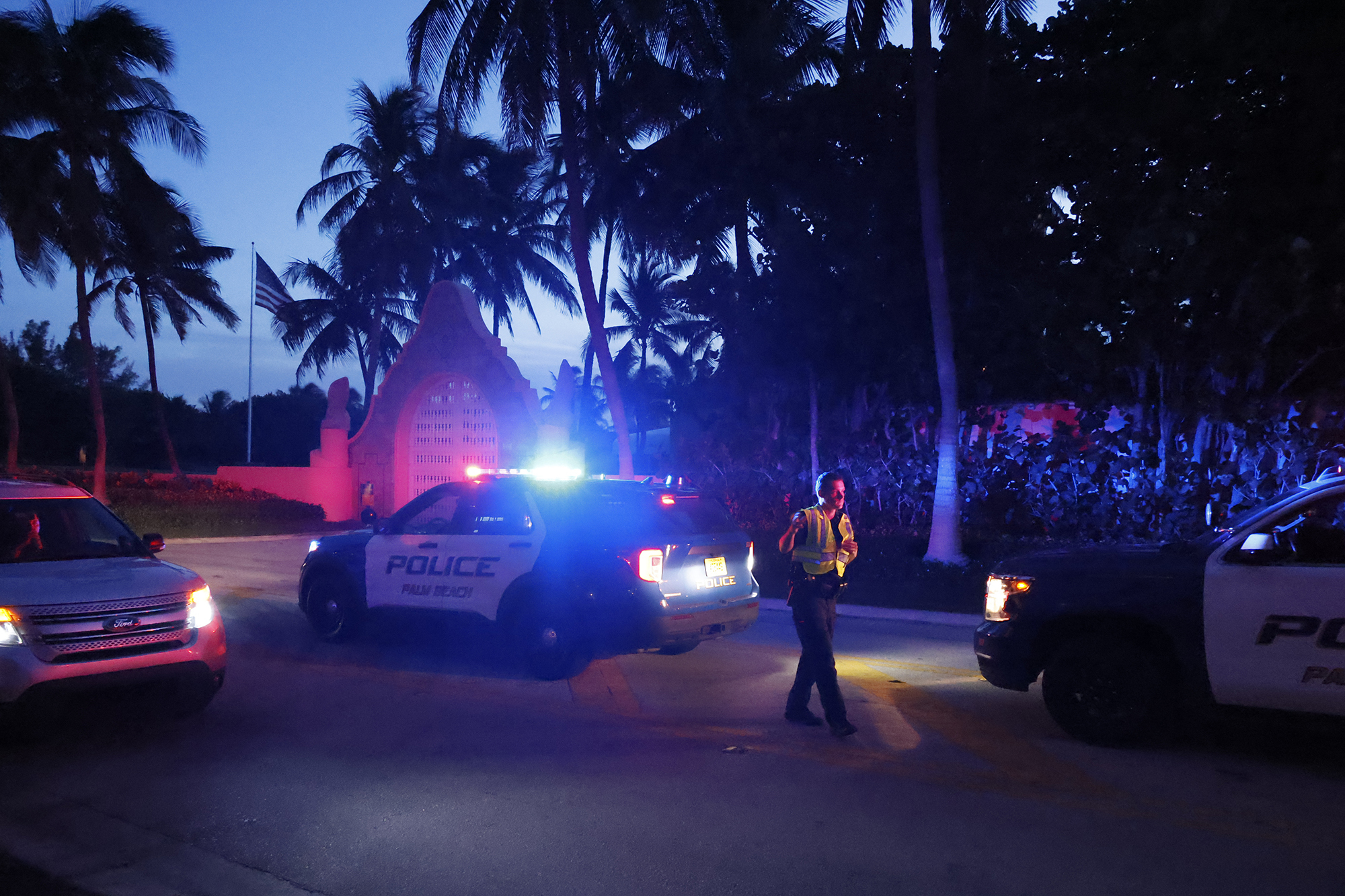Two Florida judges are at the center of the storm surrounding the FBI’s raid of Donald Trump’s Mar-a-Lago home, with one having signed off on the search and the other handling the former president’s demand for a special master.
One of the judges, Magistrate Judge Bruce Reinhart, was thrust into the spotlight after signing off on the Aug. 5 request by the FBI to search Trump’s Florida resort home. The other, Trump-appointed U.S. District Judge Aileen Mercedes Cannon, joined the fray after announcing she is leaning toward the appointment of an independent attorney to scrutinize the records the Department of Justice seized.
Both work in the U.S. District Court for the Southern District of Florida and have overlapped in at least three criminal cases in the jurisdiction before.
One was a case related to a caretaker of two seniors charged in July 2021 with illegally accessing their bank accounts to steal nearly $300,000. Reinhart oversaw the defendant’s initial appearance while Cannon handled the rest of the case. Another was a fraud scheme that bilked investors out of more than $900,000, with Reinhart taking the guilty plea in July 2021 while Cannon pronounced the sentence. And a third was a wire fraud case related to a Palm Beach County resident who pleaded guilty in August 2021, in which the plea was again taken by Reinhart while Cannon handed down the sentence.
BREAKDOWN OF DOJ PHOTO FROM MAR-A-LAGO RAID

Magistrate Judge Bruce Reinhart
Reinhart’s critics quickly seized on his ties to notorious sex offender Jeffrey Epstein. The judge left his job with the DOJ in 2008 and was accused in a lawsuit filed by two of Epstein’s victims of doing so in order to provide Epstein inside information. Reinhart has denied the allegations.
“In 2011, Reinhart was named in the Crime Victims’ Rights Act lawsuit, which accused him of violating Justice Department policies by switching sides, implying that he leveraged inside information about Epstein’s investigation to curry favor with Epstein,” the Miami Herald reported, adding that Reinhart denied the allegation in a sworn allegation, testifying he had not participated in Epstein’s criminal case and “never learned any confidential, non-public information about the Epstein matter.”
But the outlet said the U.S. attorney’s office “disputed that, saying in court papers that he did possess confidential information about the case.” The outlet said Reinhart told them in an email that “he never represented Epstein — only Epstein’s pilots; his scheduler, Sarah Kellen; and Nadia Marcinkova, described by some victims as Epstein’s sex slave.”
Reinhart worked in private practice for 10 years before becoming a magistrate judge. The now judge was asked in 2014 about the controversy surrounding Obama IRS official Lois Lerner, including the fact that the IRS told congressional investigators that thousands of Lerner’s emails could not be found.
“Let me put it this way: Incompetence doesn’t necessarily lead to criminality,” Reinhart said when asked about the saga, arguing, “The IRS has one of the most antiquated computer systems in the world, and the fact that emails could have disappeared without Ms. Lerner knowing about it or Ms. Lerner being involved is entirely credible to me.”
Reinhart had also worked as an assistant U.S. attorney in West Palm Beach from 1996 to 2008 and was a trial attorney in the DOJ’s public integrity section from 1988 to 1996. He has talked about how he personally knew and liked Obama Attorney General Eric Holder.

The Florida court removed Reinhart’s page from its website a couple of days after the Trump raid after his connection to Epstein went viral on social media.
Reinhart also recused himself from a civil lawsuit involving Trump and his 2016 presidential opponent, former Secretary of State Hillary Clinton.
Trump sued Clinton, the Democratic National Committee, and numerous political entities and figures in March for promoting stories that alleged Trump was colluding with Russia during the 2016 election.
Reinhart recused himself from the case on June 22, citing a portion of the U.S. Code that requires any magistrate judges to disqualify themselves if they have a “personal bias or prejudice concerning a party, or personal knowledge of disputed evidentiary facts concerning the proceeding.”
U.S. District Judge Aileen Mercedes Cannon
Cannon, meanwhile, has previously been grilled on whether she would show “loyalty” to Trump during her appointment hearings.
Sen. Dianne Feinstein (D-CA) asked Cannon if, at any point during her nomination process, she had discussions with anyone, including at the White House or DOJ, showing “loyalty” to Trump. Cannon responded, “No.”
When asked about comments Trump made as a candidate and as president, Cannon replied, “As a judicial nominee, it would not be appropriate for me to comment on the political statements of elected officials, including President Trump.”
CLICK HERE TO READ MORE FROM THE WASHINGTON EXAMINER
Cannon was nominated by Trump to the federal bench in May 2020, and she was confirmed by the Senate in November 2020 in a 56-21 vote.
Cannon graduated from the University of Michigan Law School in 2007 and worked as an assistant U.S. attorney for the Southern District of Florida from 2013 to 2020.
The DOJ website features one case prosecuted by Cannon while she was an assistant U.S. attorney, in which a Miami resident was charged with five counts of theft of government funds in 2015 after he allegedly received more than $112,000 in fraudulent tax returns in 2010 and 2011.
As a judge, Cannon oversaw another 2021 case, which resulted in a civil injunction order signed by the judge that permanently barred a Florida tax return preparer from preparing federal tax returns for others after preparing returns for customers that fabricated business expenses of over $40,000 in one instance and over $20,000 in expenses plus over $22,000 in costs of goods sold in another.
She had also been a law clerk for the 8th U.S. Circuit Court of Appeals from September 2008 to September 2009 and was a member of the conservative Federalist Society starting in 2005.
Cannon said in a Saturday order that she was providing notice of her “preliminary intent to appoint a special master in this case” and noted the decision was made due to the “exceptional circumstances presented.”

